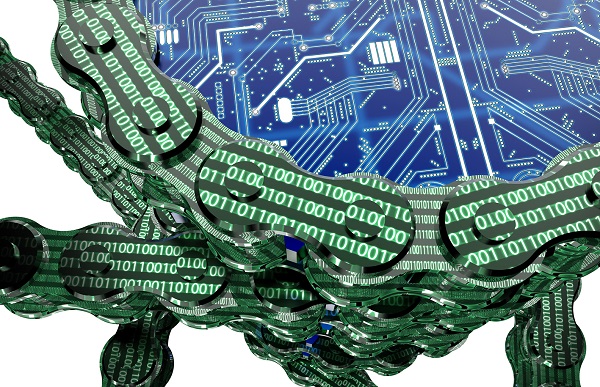Despite benefits, blockchain adoption is slow in life sciences, says report

Widespread adoption of blockchain could add $3 billion-worth of value to life sciences companies by 2025, but adoption is being held back by the mindset of leadership in the sector.
That’s the message of a new PreScouter report on blockchain in the life sciences and healthcare settings, which suggests that blockchain could transform drug development and the supply chain, clinical trials management, and the delivery of healthcare to patients.
Blockchain is a growing, real-time list of records or ‘blocks’, each containing a timestamp that cannot be tampered with retroactively and which provides a secure provenance – visible across a network of computers – that cannot be surreptitiously modified.
It’s already being piloted in pharma as another layer of protection for medicine packages as they flow through the supply chain, on top of serialised datamatrix codes, to try to prevent counterfeiting or diversion.
The research suggests that while 70% of life science leaders intend to set up a blockchain network this year, there are still “a number of challenges when it comes to adoption,” according to Dr Charles Wright, co-author of the report and PreScouter’s technical director for the healthcare and life sciences industry.
“The consensus opinion is that changing the mindset of private, public and political leadership for adopting blockchain technology and the requisite change in management is the single greatest hurdle facing blockchain deployment,” he says.
Applications for blockchain in manufacturing and supply chain could help reduce waste – for example by tracking if a temperature-sensitive drug has been transported or stored without appropriate refrigeration.
It could also ensure traceability by making it easer to validate the provenance and authenticity of products.
In the clinical trials arena, blockchain records could allow monitoring of an entire trial ecosystem – including patient health status, milestones met, and any protocol deviations – in real time. There are however still problems to overcome in areas like patient privacy, intellectual property (IP) protection, and regulatory oversight.
For patients, the promise of blockchain lies in its potential to provide greater security and flexibility for sensitive data.
For example, it could allow them to disclose only part of their information via blockchain-based smart contracts, track and monitor medicine usage, assist in the delivery of personalised therapies, and make it easier to secure reimbursement.
In spite of slow adoption, PreScouter predicts that the value added by blockchains will grow to $176 billion by 2025 including non-financial usages in the life sciences – representing about 5% of total value.
Adoption in other industries over the next five years will eventually encourage uptake in highly-regulated industries like life sciences, traditionally a very conservative and slow-moving sector when it comes to new technology adoption.











